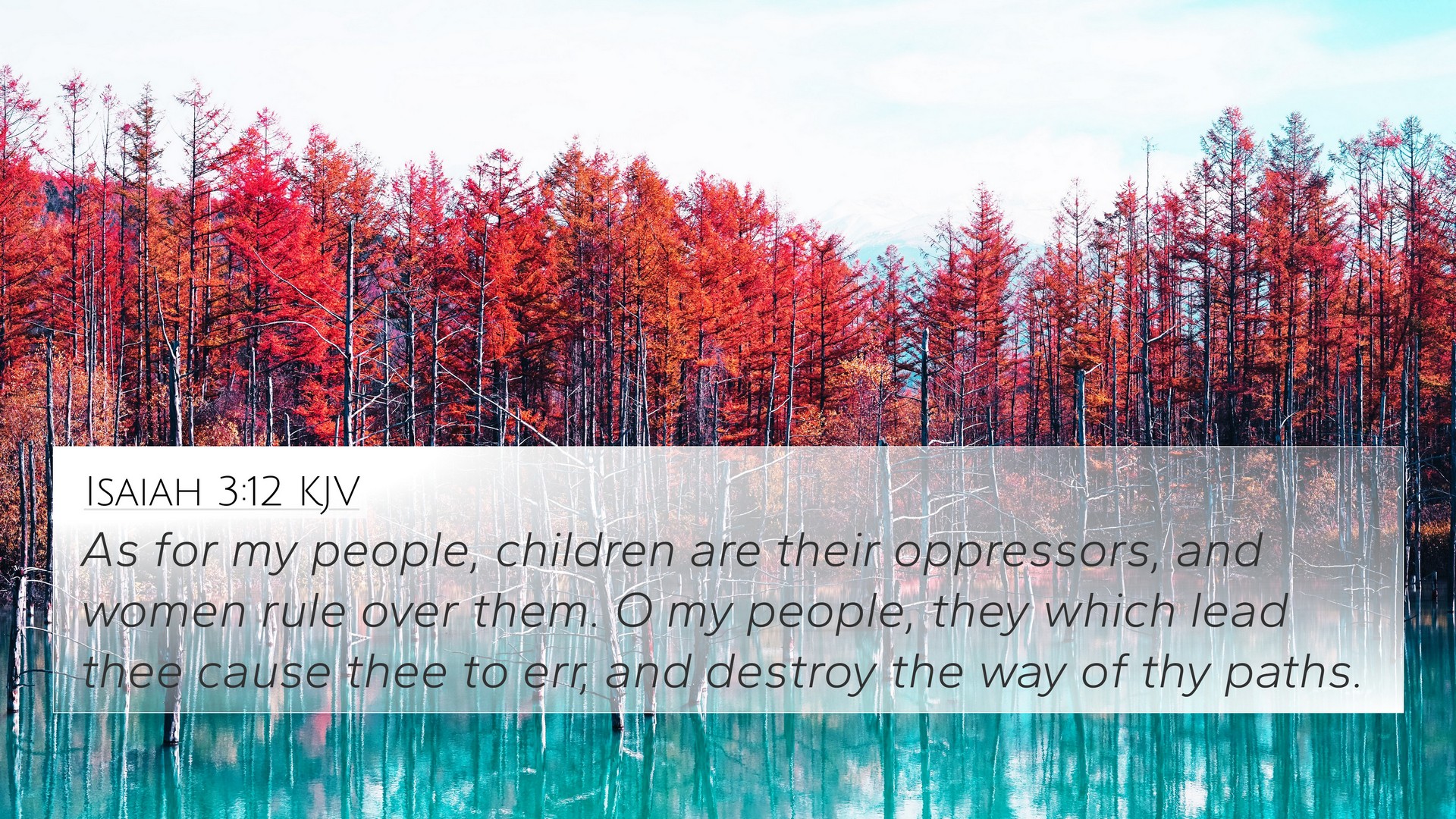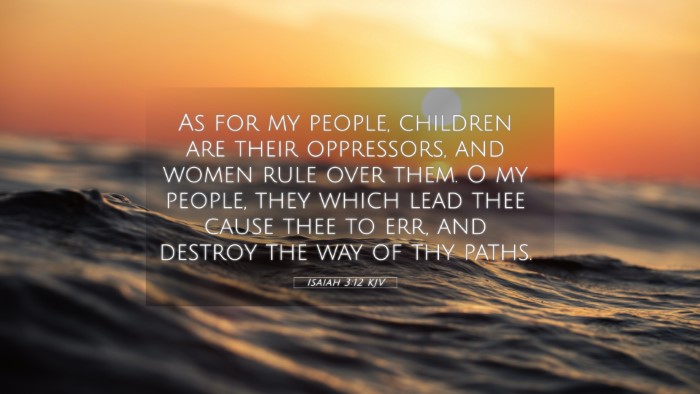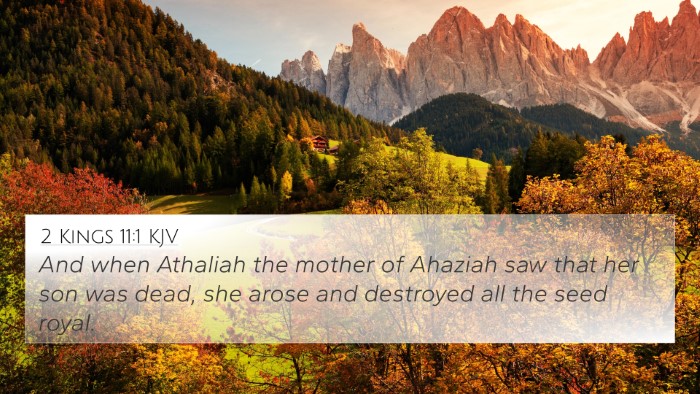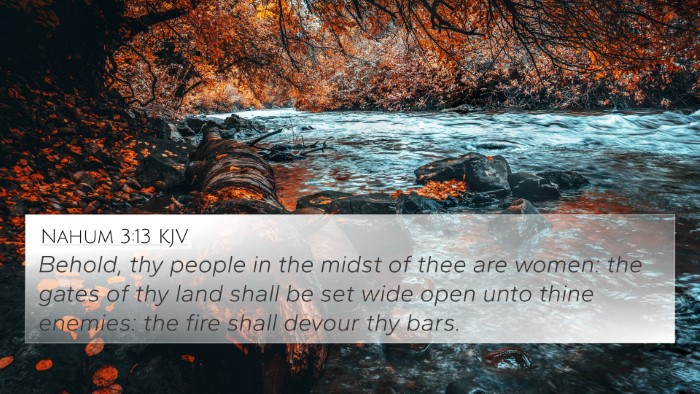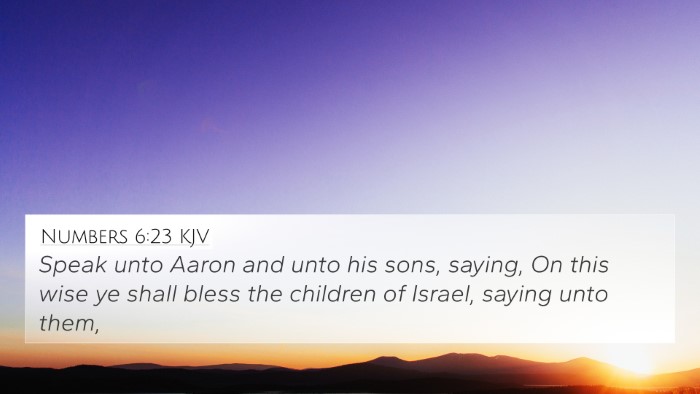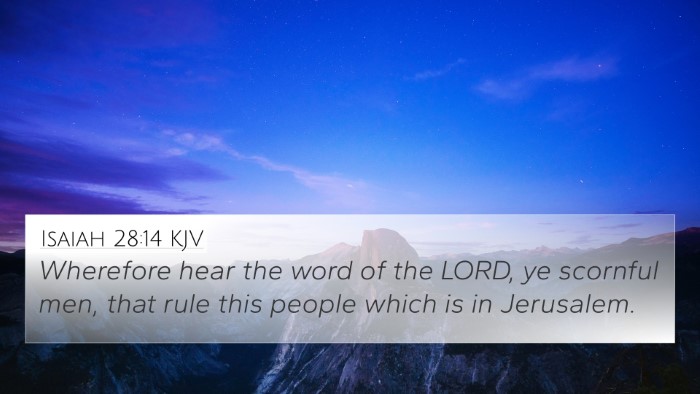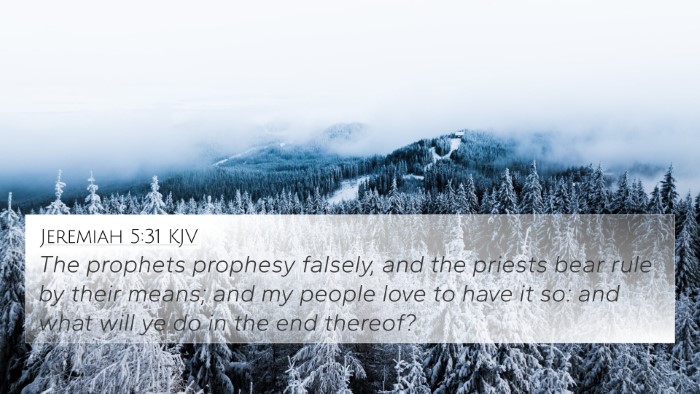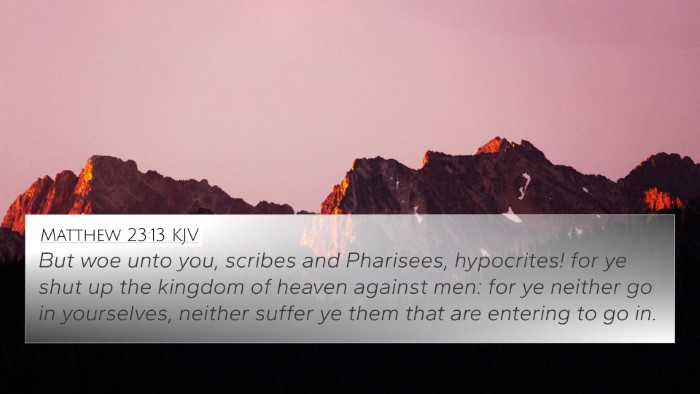Understanding Isaiah 3:12
Isaiah 3:12 states: “As for my people, children are their oppressors, and women rule over them. O my people, those who lead you cause you to err, and destroy the way of your paths.” This verse provides a poignant commentary on the state of society during the prophet Isaiah's time, highlighting the consequences of a departure from God's ways.
Summary of Insights from Public Domain Commentaries
This verse serves as a reflection of societal tumult and the breakdown of divine order, as understood through several classic Bible commentaries.
- Matthew Henry emphasizes that when the people of God stray away from divine guidance, disorder ensues. The reference to children as oppressors and women ruling over them indicates a reversal of natural order, suggesting that leadership has fallen into unqualified hands. This commentary brings attention to the gravity of moral decay in the leadership affecting the entire community.
- Albert Barnes interprets this verse to reveal the consequences of poor governance and ill-fated leadership. He suggests that the leaders of the people have forsaken their responsibilities, leading to the indignity wherein the youth and women dominate societal roles traditionally held by men. This indicates societal confusion and spiritual erosion, making the people vulnerable.
- Adam Clarke takes note of the symbolic implications of oppression by children and rule from women, suggesting a symbolic confusion where the expected leaders are ineffective or absent. Clarke's analyses highlight the warnings against negligence in leadership and the consequences that arise when those meant to guide the people lead them astray through ignorance or malice.
Thematic Connections in Scripture
Isaiah 3:12 resonates with several other biblical passages that emphasize the importance of godly leadership and the consequences of moral decay:
- Isaiah 9:16 – “For the leaders of this people cause them to err, and those who are led by them are destroyed.” This verse echoes the sentiments found in Isaiah 3:12 about the failures of leadership.
- Jeremiah 5:30-31 – “A wonderful and horrible thing is committed in the land; the prophets prophesy falsely, and the priests bear rule by their means; and my people love to have it so.” This reflects the spiritual corruption similar to that found in Isaiah's time.
- Micah 3:1-3 – “And I said, Hear, I pray you, O heads of Jacob, and ye rulers of the house of Israel; Is it not for you to know judgment? Who hate the good, and love the evil.” Micah’s words parallel Isaiah’s concerns about inadequate leadership and accountability.
- 1 Timothy 2:12 – “But I suffer not a woman to teach, nor to usurp authority over the man, but to be in silence.” This New Testament verse provides insight into God's intended order within the church, often reflecting themes of authority and leadership.
- Proverbs 29:2 – “When the righteous are in authority, the people rejoice; but when the wicked beareth rule, the people mourn.” A reminder that governance affects the well-being of the community.
- Isaiah 1:23 – “Thy princes are rebellious, and companions of thieves: every one loveth gifts, and followeth after rewards.” This verse captures the disloyalty of leaders, akin to those referenced in Isaiah 3:12.
- Matthew 23:12 – “And whosoever shall exalt himself shall be abased; and he that shall humble himself shall be exalted.” Jesus emphasizes humility in leadership, contrasting the prideful leaders of Isaiah's time.
Modern Applications of Isaiah 3:12
The themes encapsulated in Isaiah 3:12 provide important lessons for contemporary readers. Here are a few applications:
- Leadership Accountability: Just as the people in Isaiah's time faced challenges due to poor leadership, modern leaders are urged to fulfill their roles with integrity and responsibility.
- Moral Direction: The verse serves as a reminder of the importance of aligning with God’s teachings to prevent societal decay.
- Raising Awareness: Communities are encouraged to seek wise and God-fearing leaders who can discern truth from falsehood.
Cross-Referencing Resources
For those engaged in in-depth biblical study, there are numerous tools and resources available to aid in cross-referencing:
- Bible Concordance: A valuable tool for identifying connections between verses.
- Bible Reference Resources: Helps in finding linked thematic Bible verses effectively.
- Bible Cross-reference Guide: Facilitates better understanding through comparative Bible verse analysis.
- Cross-reference Bible Study: Many study aids assist believers in exploring connections between scriptures for deeper insights.
Conclusion
Isaiah 3:12 serves as a solemn reminder of the consequences of forsaking true leadership rooted in godliness. By observing its connections to other Bible verses, believers can gain a fuller understanding of God's intent, learn valuable lessons on leadership, and reinforce their commitment to living lives that honor Him. This verse encourages us to uphold values that align with divine standards, ensuring that we do not follow the patterns of historical failure but instead align ourselves in a way that honors God and guides our communities towards righteousness.
